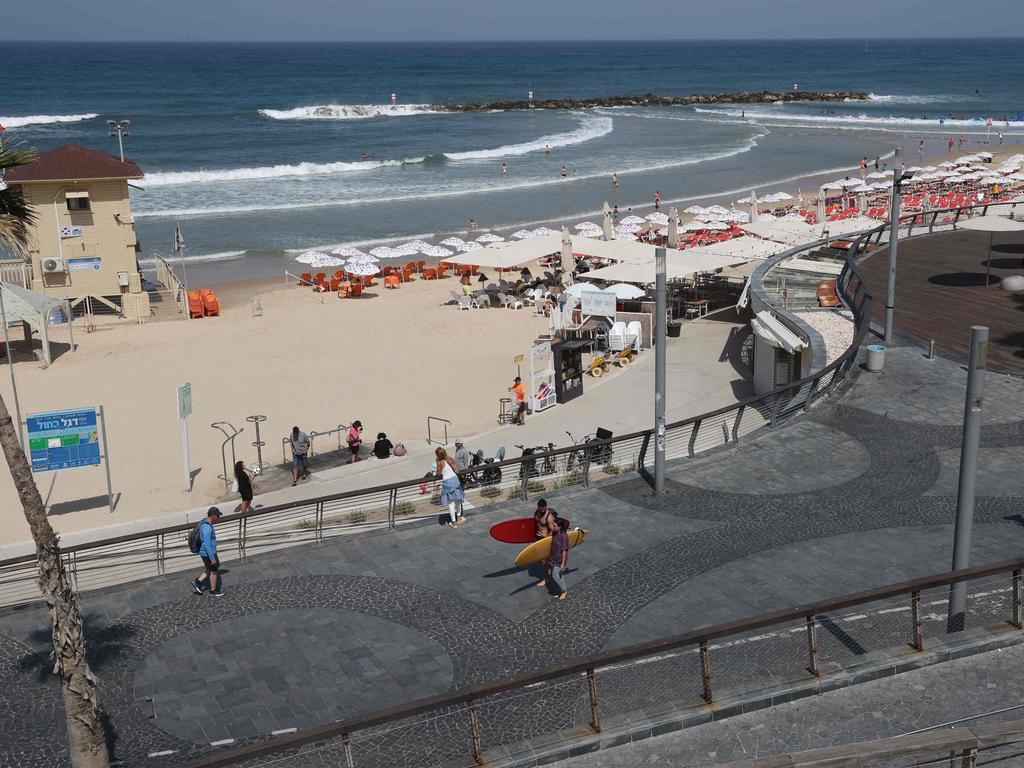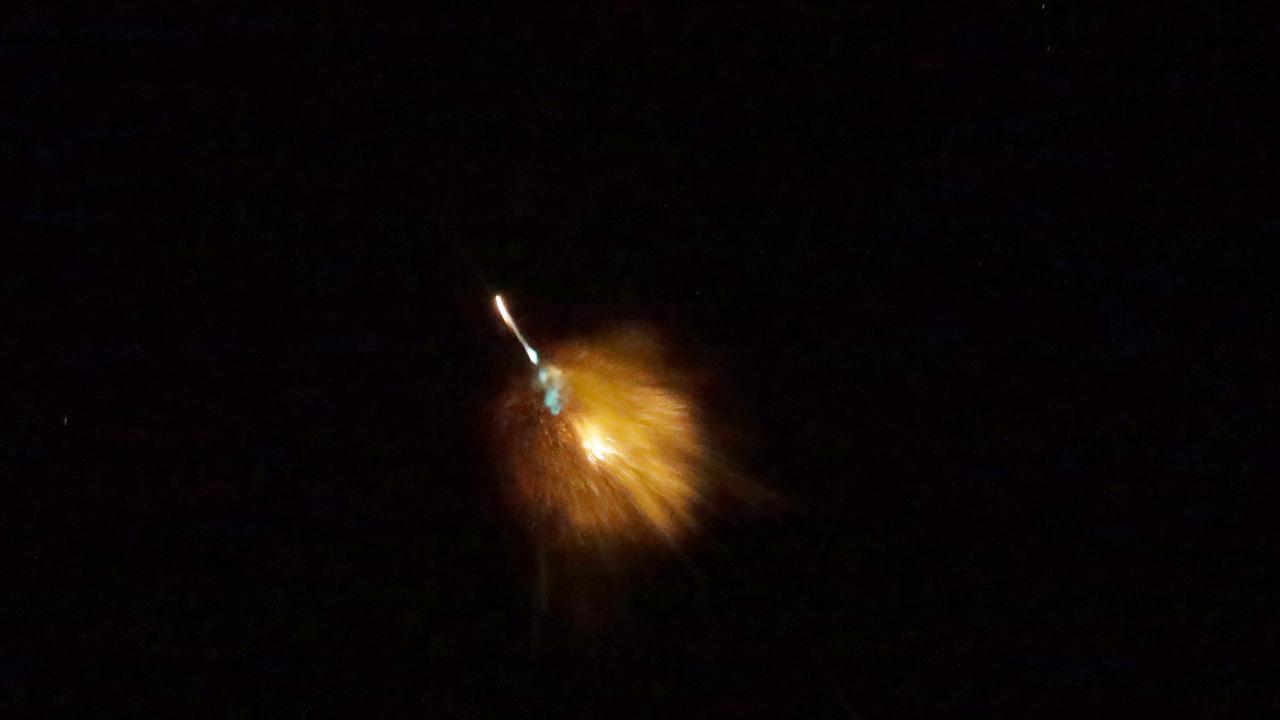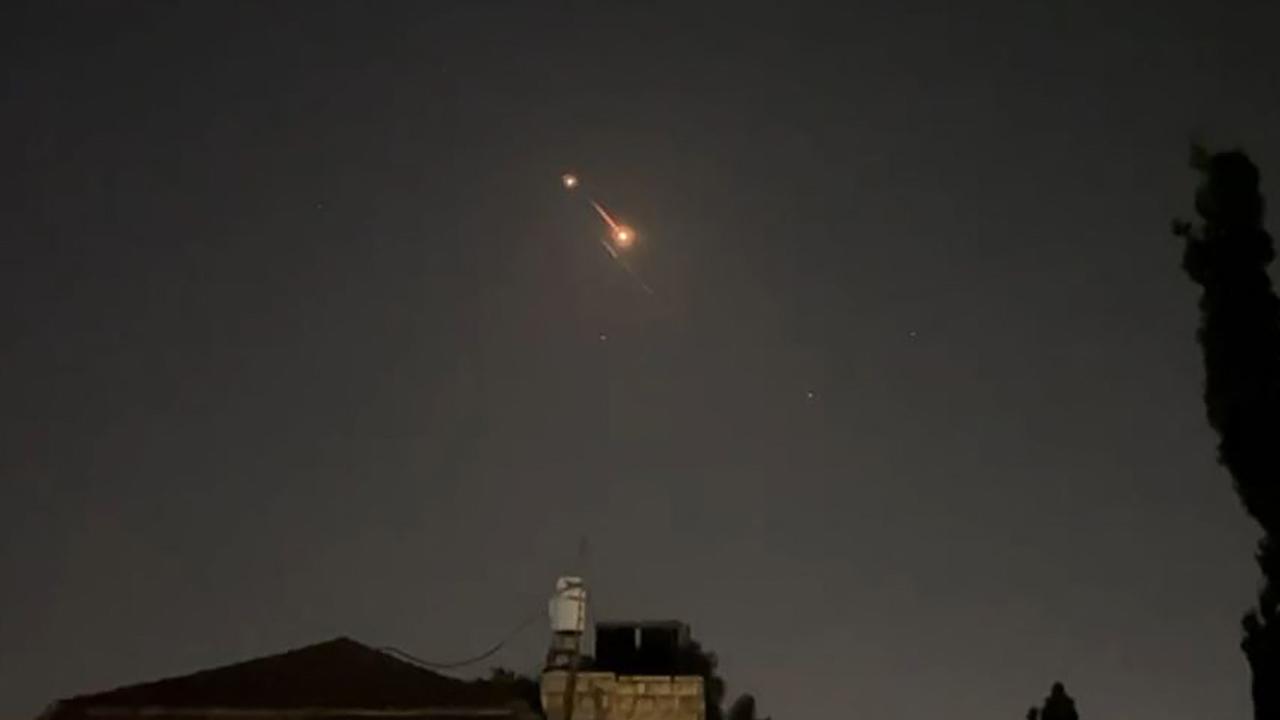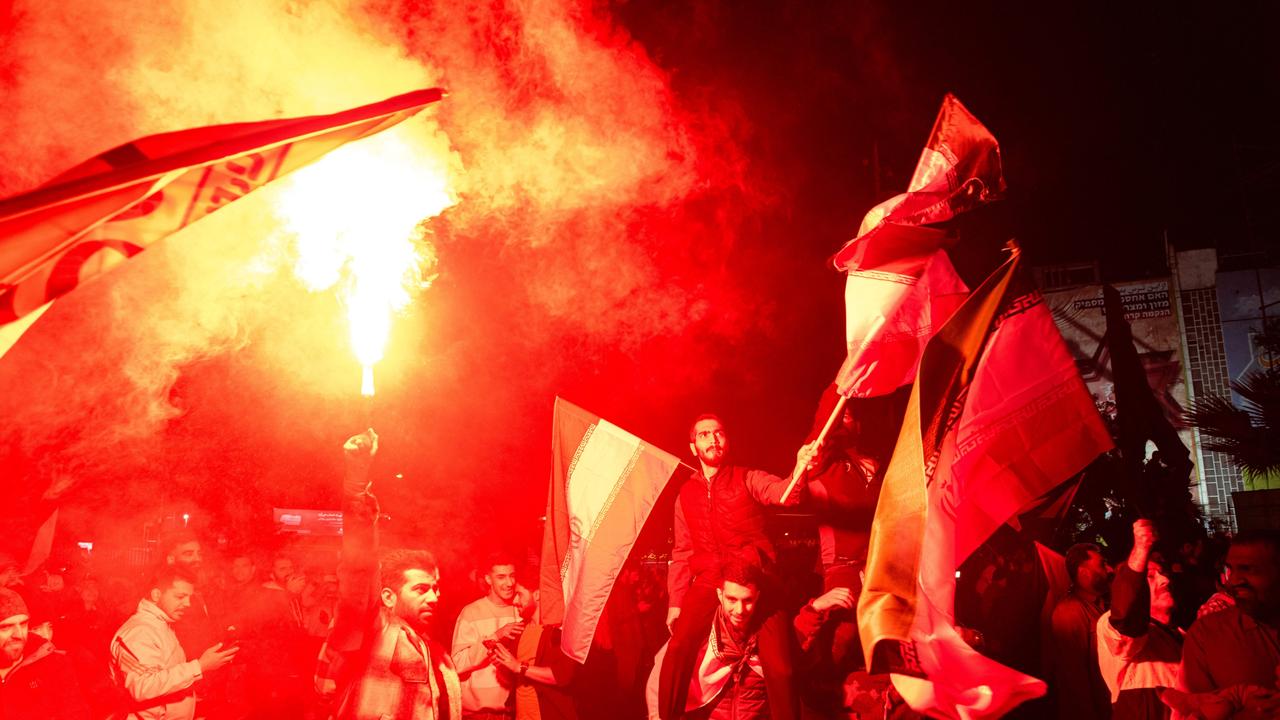‘Leave’: Aussies told to evacuate Israel after nation launched a missile attack in retaliation at Iran
Locals were out and about on Friday but not many could ignore the ominous new threat of war as tensions threaten to escalate.
Locals in Tel Aviv enjoyed a stunning beach day on Friday despite growing fears of a major regional spillover from the war in Gaza.
Residents were spotted out and about after Israel launched a reltaliatory strike against Iran, with Aussies told to leave the country “if it is safe to do so”.
A US official confirmed to ABC News that Israeli missiles had hit a site in Iran early on Friday morning, local time.


There were additional explosions reported in Iraq and Syria, but the official did not confirm if sites in those countries were also hit.
The Department of Foreign Affairs and Trade has now warned Australians the security situation “could deteriorate quickly” in a post shared on X by the government’s Smartraveller site.
“There’s a high threat of military reprisals and terrorist attacks against Israel and Israeli interests across the region,” the post read.
“We urge Australians in Israel or the Occupied Palestinian Territories to depart.”
It also warned “military attacks may result in airspace closures, flight cancellations and diversions and other travel disruptions”.
Explosions were reportedly heard over the city of Isfahan – about 346 kilometres south of Tehran, per the Associated Press.
But Iran said on Friday it shot down several drones and that there had been “no missile attack for now” on the country.
Several drones “have been successfully shot down by the country’s air defence, there are no reports of a missile attack for now”, Iran’s space agency spokesman Hossein Dalirian said on X.

The FARS news agency said “three explosions” were heard near the Shekari army air base near Isfahan.
One expert told the BBC that the selection of Isfahan, Iran’s second city, as a potential target was “very significant” as it is the site of a controversial refining facility suspected of producing nuclear-weapons-grade uranium.
It’s also one of Iran’s best-defended sites.
Speaking to broadcaster, Hamish De Bretton Gordon, a former commander of UK and Nato nuclear forces, said: “[The reported attack] was fairly near to where we believe Iran is building nuclear weapons, so I expect it was a nod to them.”
US Secretary of State Antony Blinken refused to comment on reports of an attack by Israel on Iran, beyond saying Washington was “not involved in any offensive operation”.
Speaking to journalists after a meeting with G7 counterparts in Italy, he declined to answer repeated questions about explosions in Iran, and reports that Israel had carried out retaliatory strikes.
“I’m not going to speak to these reported events... All I can say is for our part and for all the members of the G7 our focus is on de-escalation”, Blinken told a press conference on the island of Capri.
Meanwhile UN Secretary-General Antonio Guterres called for an end to “the dangerous cycle of retaliation” in the Middle East following the reported strike.
The UN chief condemned “any act of retaliation” and called on the international community to prevent “any further development that could lead to devastating consequences for the entire region and beyond,” his spokesman said in a statement.
China, Egypt, Turkey and Germany have also called for a de-escalation of tensions.
The Israeli military has declined to comment on the reported strike.
Not long after the attack, Iran activated its air defence systems over several regions, according to state media.
About the same time, commercial flights were spotted changing routes over western Iran without providing an explanation.
Soon after, all flights to Tehran, Isfahan and Shiraz were suspended, CNN reported, citing the director of Iran’s public relations for an airport company.
Flight operations have now resumed at Tehran’s Imam Khomeini International Airport, Iranian state media reports.


Airline suspends flights
German airline group Lufthansa has suspended flights to Israel and Iraq until early Saturday.
Services by airlines of the group to Tel Aviv in Israel and Erbil in Iraqi Kurdistan were suspended due to the “current situation”, a spokesman told AFP.
Lufthansa subsidiary Austrian Airlines also decided as a “precautionary measure” to suspend flights to Jordan’s capital Amman, as well as Erbil and Tel Aviv on Friday “to comprehensively reassess the security situation”.
“Austrian Airlines continuously monitors and assesses the security situation in the Middle East and is in close contact with the authorities,” Austrian Airlines said in a statement.
Both Lufthansa and Austrian Airlines have already suspended their flights to and from Tehran up until the end of the month.
Damage unclear
The extent of damage from the reported strike, as well as the weapons used, was not immediately clear.
“The defence is activated in response to an object that is likely to be a drone,” sources told FARS, per CNN.
FARS reportedly claimed that the army radar was a potential target.
Other Iranian media said that nuclear facilities in Isfahan were “completely secure”.
“Nuclear facilities in Isfahan province are completely secure,” Tasnim news agency reported quoting “reliable sources”.
The International Atomic Energy Agency has also confirmed there was no damage to Iran’s nuclear sites.
Israel gave Washington advance warning
The US received advance notice of Israel’s reported strike on Iran but did not endorse the operation or play any part in its execution, US media quoted officials as saying.
NBC and CNN, citing sources familiar with the matter and a US official, respectively, said Israel had provided Washington with pre-notification of the strike.
Israel told the United States on Thursday it would be retaliating against Iran in the coming days, a senior US official told CNN.
“We didn’t endorse the response,” the official said, according to CNN.
There was no immediate comment from the White House about the Israeli strike.
Attack sent ‘message’
A retired US Army Major General said the retaliatory strike, which followed Iran’s attack at the weekend, was likely intended as a message.
“Israelis had to retaliate,” retired Major General Mark MacCarley told CNN.
“But at the same time, within that retaliation was a message, and that is, ‘Yes, we can get through. Don’t do it again. If you do it again, then all heck will break out.’”
General MacCarley warned Israel must now “maintain its vigilance” in case Iran decides to respond.
On Saturday, Iran unleashed an attack against Israel made up of more than 300 ballistic missiles, cruise missiles and attack drones.
Most of the missiles were intercepted or caused little damage to Israel.
Only one casualty was reported, with a seven-year-old Bedouin girl being hit by falling debris from an interceptor rocket in southern Israel.


At the time, Iran claimed the launch was in self-defence, claiming Israel killed seven of its Revolutionary Guards during a strike on the Iranian consulate in Damascus, Syria on April 1. An Iranian commander was killed in the strike.
Israeli President Isaac Herzog has described the attack from Iran as a “declaration of war.”
Herzog claimed it is “time the world faces this empire of evil in Tehran” amid Western fears of an all-out war in the region.
Israel previously warned of an “imminent” retaliatory response to the weekend attack.
An IDF official said such an attack would be “co-ordinated with the Americans.”
As of Monday, the IDF had approved plans for an “offensive” against Iran.
David Mencer, a spokesman for the Israeli government, said the country “retains all its options.
More Coverage
“We reserve the right to do everything in our power, and we will do everything in our power to defend this country,” Mencer said.
Iran’s Supreme National Security Council also vowed to retaliate against Israel if a counter-attack was launched.
– with The Sun





